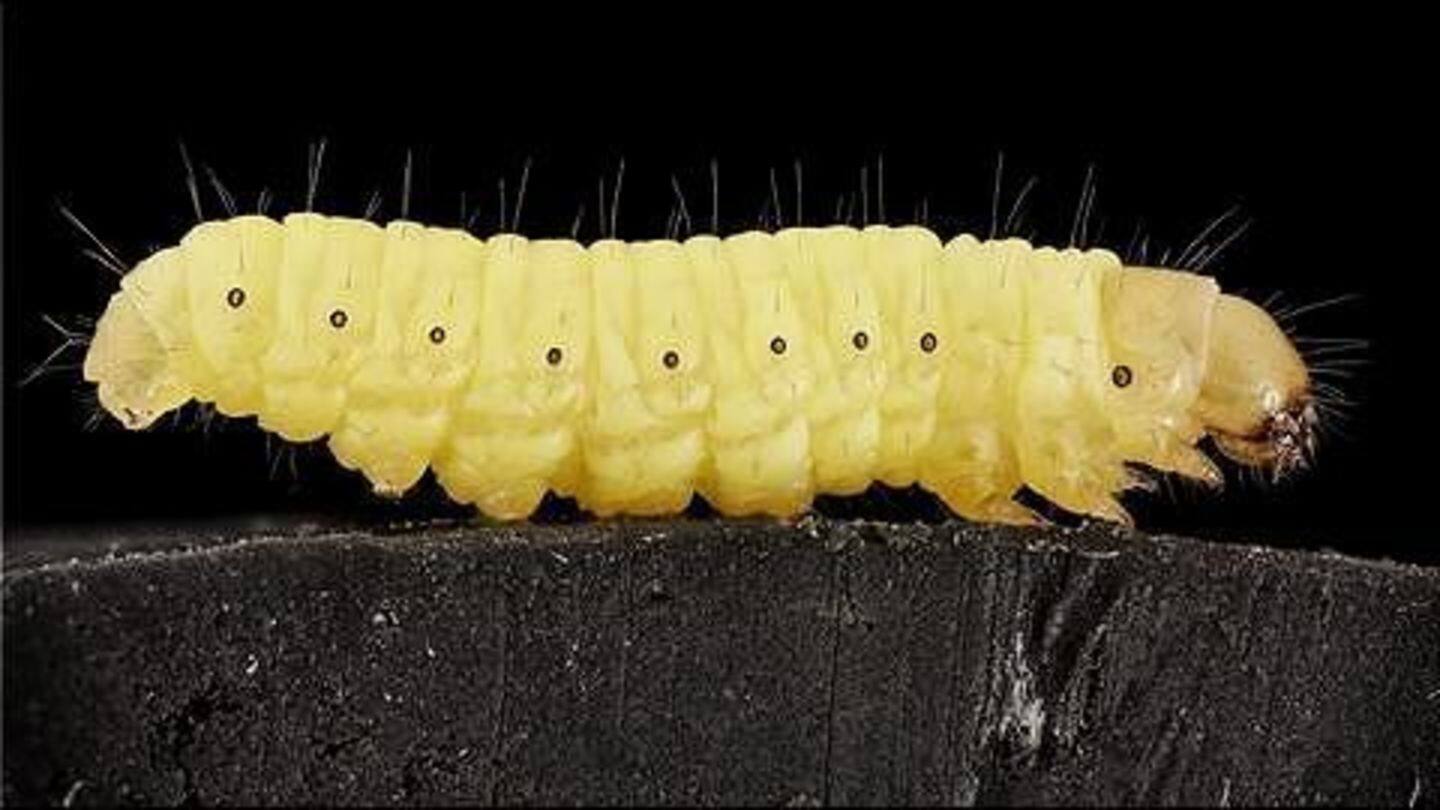
Plastic-eating waxworms: The answer to India's plastic pollution?
What's the story
Spanish scientist Frederica Bertocchini discovered waxworms called Galleria mellonella that may hold the key to rid the world of plastic waste accumulated over decades.
The wax moth caterpillar voraciously consumes and digests polyethylene, used to make bottles, containers, bags, etc.
As we are "sitting on a plastic time bomb", according to the Supreme Court, the bug may actually help reduce plastic pollution in India.
Quote
Waxworms can degrade plastic really fast, says Bertocchini
Bertocchini said, "One hundred wax worms are capable of biodegrading 92 milligrams of polyethylene in 12 hours, which really is very fast." She added it may sound "tardy" but left alone even low-density plastic bags could take about a century to break down completely.
How?
How were the plastic-eating bugs discovered?
Bertocchini, a scientist at Spanish National Research Council, is also an amateur beekeeper.
She was cleaning the beehive panels infested by the waxworms.
She left them in a plastic bag to throw away and returned to find the room full of worms.
She explained, "The worms had made the holes and had escaped. This project began there and then."
Degradation
How are waxworms breaking down plastic?
Scientists are studying the exact way in which the waxworms are breaking down plastic.
However, researchers suggest the make-up of polyethylene is similar to that of the beeswax; so, the waxworms are capable of using the same mechanism to degrade both.
All that needs to be done is to keep the wax moth's cocoon in contact with polyethylene and it leads to plastic degradation.
Oceans
12.7 million kg plastic waste enters the oceans every year
Around 12.7 million kilograms of plastic waste enters the oceans every year; the Ocean Conservancy estimates the figure could double by the next decade.
All the corners of our planet are infested with plastic.
Large plumes of plastic waste are floating in the oceans and eventually find their way to the stomachs of the marine animals killing most of them.
India
The status of plastic pollution in India
The status of plastic pollution in India is getting worse by the day.
According to a 2015 survey of Central Pollution Control Board, 60 of major Indian cities generated 15,000 tons of plastic waste every day.
The collected waste is neither treated nor recycled and it is dumped in landfills and water bodies.
Nothing much has changed even two years after the survey.